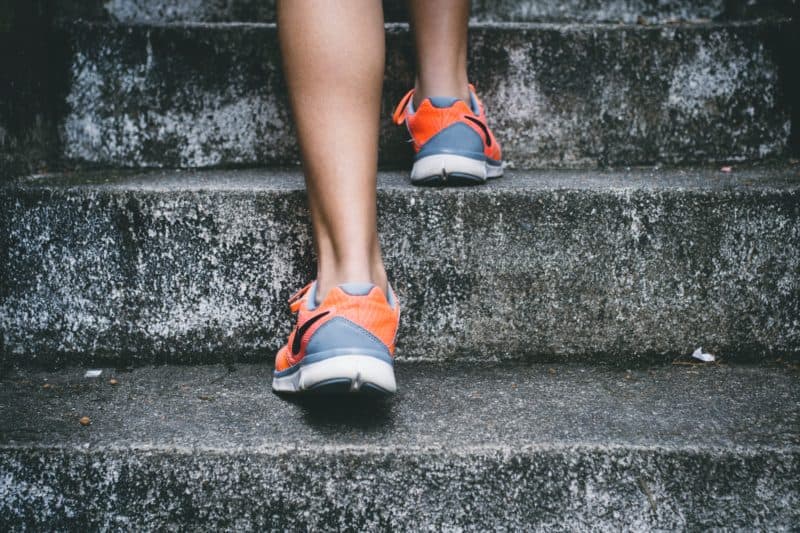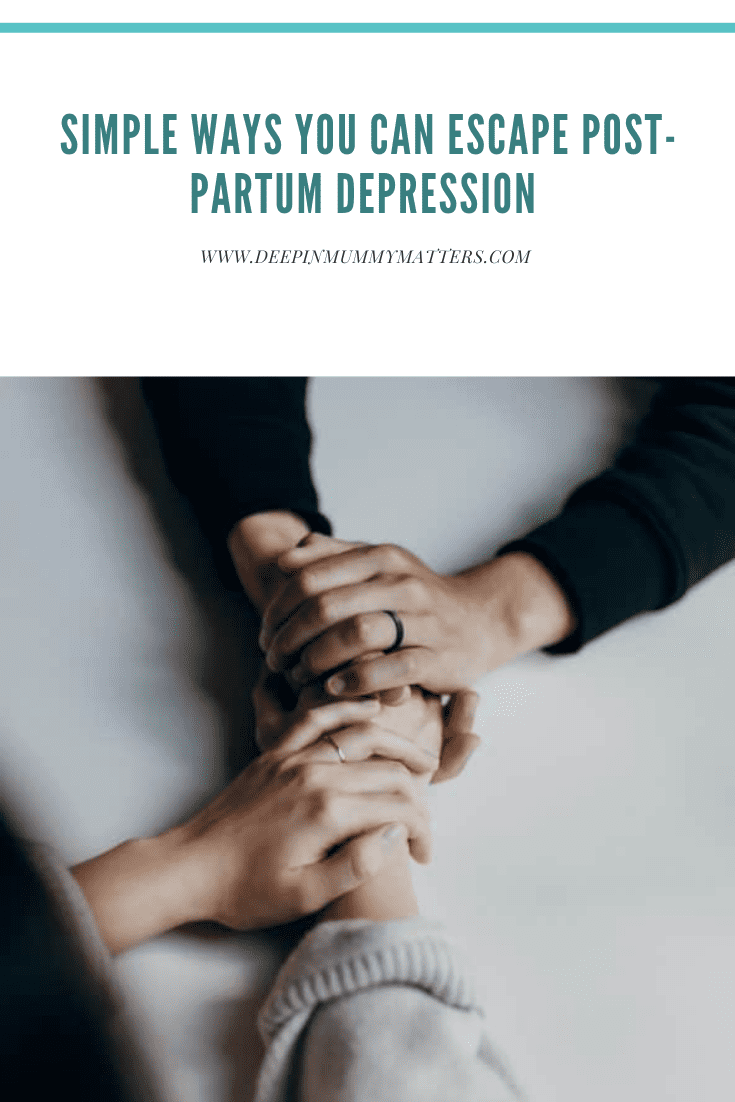The period following the birth of your child can be a roller coaster of emotions. You may experience a range of emotions, from delight to fear to despair. You may be suffering from postpartum depression if your melancholy becomes serious and starts to interfere with your daily life (PPD).
Symptoms normally appear a few weeks after delivery, but they might appear up to six months later. Mood fluctuations, difficulty connecting with your infant, and difficulty comprehending or making decisions are all possible symptoms. Seeing your doctor is by far the most effective approach to identify and treat PPD. They can assess your clinical symptoms and recommend the best course of action for you. Psychotherapy, medications or both may be beneficial to you.
In addition to that, there are several things you should consider undertaking to complement the medical solutions offered by your doctor.
1. Building a Support System

Positive social contacts and emotional support may have a protective role in reducing stress and coping with life’s challenges. New mothers may experience feelings of isolation and overwhelm as they adjust to their new roles. According to studies, loneliness causes severe feelings of isolation, a sense of being alienated from people, and a sense of not belonging.
Loneliness has also been linked to high blood pressure, sleep problems, weakened immunity, and heart disease risk markers. Getting help and support from others can help build your self and feeling of empowerment, allowing you to better deal with issues on your own.
2. Slowly Introduce Exercise

For women with PPD, exercise may have an antidepressant effect. Whether it is walking with your child in a stroller or otherwise, walking is a convenient way to get some exercise and fresh air. Walking has been discovered to be a statistically effective method of reducing depression.
Don’t have time for a long workout? Work exercise for 10 minutes several times throughout the day. Joining a fitness class is beneficial since the goal is to avoid feeling isolated, which can lead to unexpected feelings of despair. Take your time with this one, gradually increase your strength, and enjoy the process, classes, and walks with your baby/babies.
3. Self-Care

Taking care of oneself is among the most powerful ways to get rid of or treat postpartum depression. Simple lifestyle changes, such as those stated below, can improve your health and attitude, allowing you to reclaim your identity.
- Consume omega-3 fatty acids. During pregnancy, eating a diet high in omega-3 fatty acids, which are found in oily fish like herring and salmon, may reduce the incidence of postpartum depression.
- Women with postpartum depression take much longer to drift off to sleep and sleep for shorter periods of time than women without the disorder. If you have family or friends who can watch your infant while you nap, take advantage of their assistance.
- Get outside and enjoy the sunshine. Your mood will be substantially improved by sunlight exposure and fresh air. Consider taking the stroller for a spin and strive to get out there for at least 10–15 minutes per day, even though your hair is a disaster or your kid has made a mess on your best pair of yoga pants.
- Give yourself a treat. Take a break from your mothering obligations and enjoy yourself in tiny ways. Take a nice bath, or light some relaxing scented candles while you watch your favorite show.
4. Dieting

PPD cannot be cured by healthy nutrition alone. Engaging in the habit of eating nutritious foods, on the other hand, can help relieve stress and provide your body with the nutrition it requires. Plan your meals for the week on the weekends, and even prepare healthy snacks beforehand.
5. Resting

According to research, women who receive the least amount of sleep also have the greatest depression symptoms. This is especially true for women who get less than four hours of sleep after midnight and before 6 a.m. or take less than 60 minutes of naps during the day.
Your kid is unlikely to sleep through the night throughout the early days. Taking naps or going to bed early may be beneficial. Try pumping a bottle when you’re breastfeeding so your spouse can take control of a nighttime feeding or two.
However, resting is not limited to just sleeping. Consider just having some time relaxing in a seat, in bed doing nothing. Depending on your needs you could consider having you and your partner look into getting custom chair solutions from a well-reputed chair manufacturer.
The Bottom Line
PPD(Postpartum Depression) can be tough to manage. The first and most important step is to involve your doctor in the diagnosis and treatment. Then, you will need the help of those around you, who will help you in a number of the self and baby care activities needed.
Walking outside may prompt the need to purchase and have a face mask or some form of personal protective equipment and often you will need to properly clean your hands and sanitize them. Look into the best hand sanitizer supplies to have a solution that will work. With that said, do take your time, but do not feel discouraged if it takes longer than anticipated to deal with.


